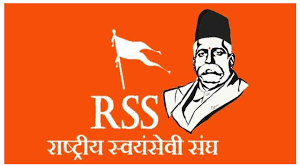India’s government has acknowledged the pressing challenges in the agricultural sector, particularly in Maharashtra, where farming sustains a large portion of the population. Climate change, erratic weather, and global market pressures have made it essential to introduce strategic initiatives aimed at strengthening the agricultural economy.
One of the key actions taken is the revision of minimum support prices for essential crops, which has emerged as a critical move to ensure that farmers receive fair value for their produce.
By revising prices for key commodities like onions, soybeans, and cotton, the government seeks to protect farmers from global market fluctuations and environmental risks. To provide further assistance, especially to soybean and onion farmers who face significant price swings, the Indian government has introduced financial support schemes to cushion these impacts.
The Bhavantar Yojana, along with a financial aid package of Rs 5000 per hectare for soybean farmers, demonstrates the government’s targeted relief efforts. Additionally, NAFED’s procurement of soybeans at record prices, coupled with subsidies for cashew growers in Konkan, ensures that these agricultural sectors remain profitable and resilient.
Boosting Agricultural Growth with Infrastructure and Support
In Maharashtra, the government’s focus on infrastructure and support systems marks a pivotal move towards enhancing agricultural productivity. The provision of free agricultural electricity to 44 lakh farmers, along with the waiver of unpaid electricity bills, significantly improves resources available for farming.
Under the Chief Minister’s Solar Agriculture Scheme, the launch of a three-megawatt solar power project is set to provide farmers with free daytime electricity. This initiative not only reduces dependence on nighttime irrigation but also promotes safer and more effective farming methods.
Maharashtra’s agricultural stability is further reinforced by water management projects. The government’s river-linking initiatives and the construction of the Marathwada Water Grid are direct responses to chronic water shortages. These projects are expected to boost water availability for irrigation across various regions, potentially resolving Maharashtra’s longstanding water crisis.
Direct Support for Farmers and Infrastructure Expansion
A major element of the government’s plan to aid the farming sector is the Pradhan Mantri Kisan Samman Nidhi Yojana, which directly transfers Rs 1000 monthly to farmers’ bank accounts, ensuring a stable income.
Additional assistance is provided to those hit by unseasonal rains, highlighting the government’s ongoing commitment to farmer welfare. Infrastructure projects like the construction of the Samriddhi Highway and the development of a logistics hub aim to speed up the transport of agricultural goods to markets and expand export opportunities through improved ports. These initiatives collectively illustrate a holistic approach to revitalizing agriculture in Maharashtra.
By tackling the diverse challenges farmers face through financial support, infrastructure development, and strategic policy reforms, the government reaffirms its commitment to securing the economic future of farmers. This comprehensive strategy shows a deep understanding of the complexities of modern agriculture and reflects a sustained effort to drive growth and resilience in Maharashtra’s farming sector.
 Newspatrolling.com News cum Content Syndication Portal Online
Newspatrolling.com News cum Content Syndication Portal Online







